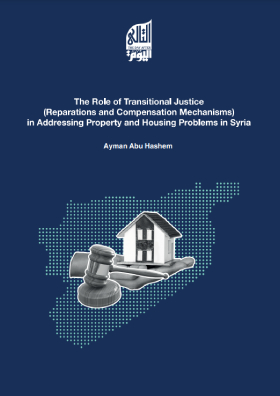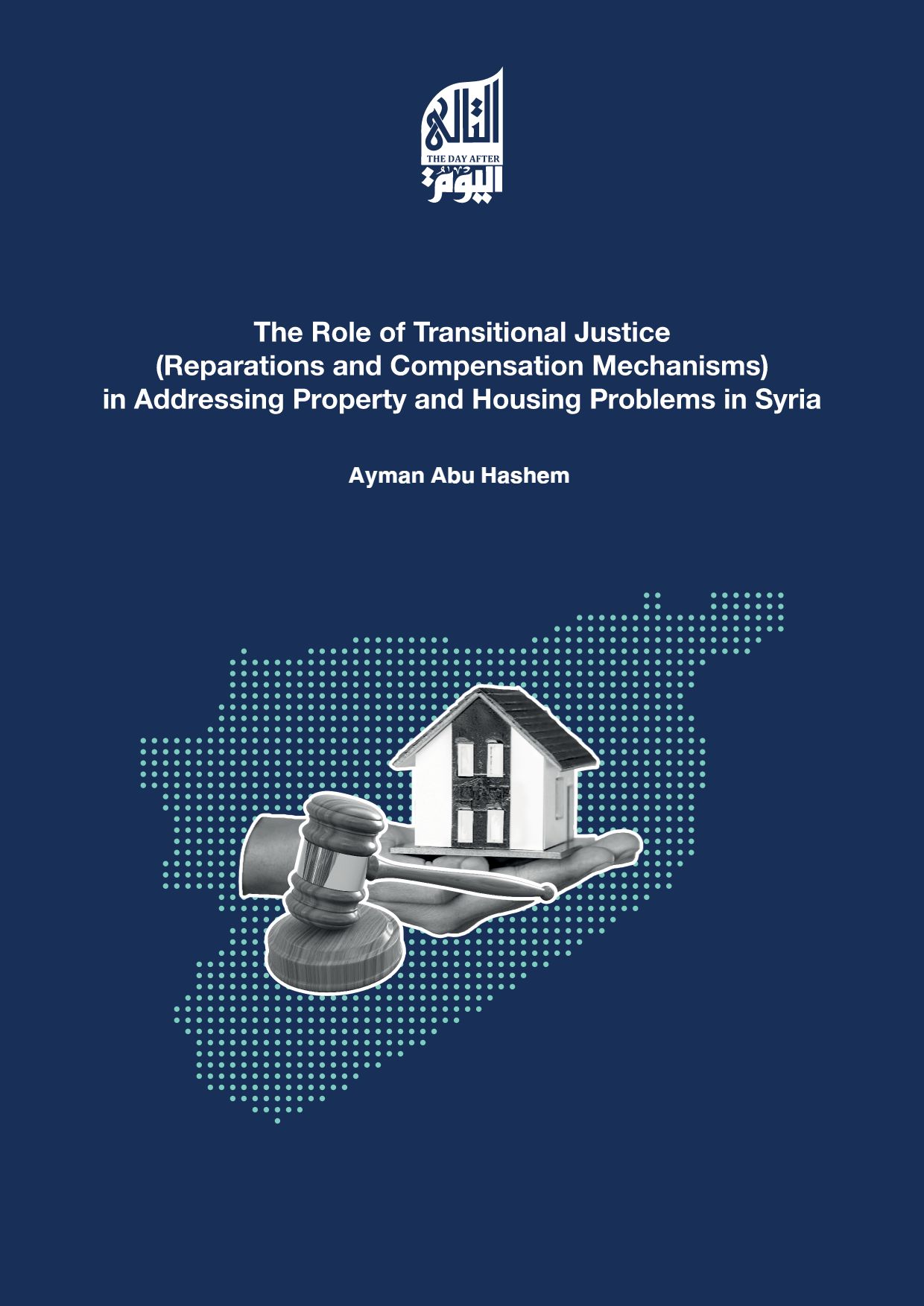
Date: March 2022
There are urgent reasons and motives for discussing the role of transitional justice in addressing the problems of property and housing in Syria. It is challenging to talk about a post-conflict period in Syria, without knowledge of the violations that affected property and housing owners, as a result of the broad and systematic policies related to real estate and property rights that were, and still currently, carried out by the regime. The regime carries out those laws through projects, and procedures that are directly and indirectly relevant to real estate and property rights. Those laws passed by the regime have undermined the real estate and property rights system in Syria and justified the confiscation and seizure of Syrian property illegally and under false pretenses.
The first section of this report discusses the evolution of the concept of transitional justice in international practice. It sheds light on the characteristics of transitional justice, and its mechanisms that have been established in international law documents and literature, which include truth commissions, prosecution, reparation, compensation and institutional reform.
The second section of this report focuses on the problems of property rights and housing from a Syrian perspective, studying the causes and factors that led to their emergence, the accumulation of their manifestations before the war, and their escalation during the war.
The third section of this report focuses on the challenges and obstacles of transitional justice in Syria, most notably the political unrest that characterized the Syrian war, and did not only fail to address the struggle of the Syrian people in its various manifestations and dimensions, but also failed to provide any possible opportunity to agree on fundamental issues, including safe and voluntary return of refugees, and property restitution and reparation.
Among the most significant challenges addressed in this report is the elitism of the culture of transitional justice in Syrian communities, and the impact of societal divisions and disagreements, and the complex social and identity heritage. Many Syrian communities perceive the concept of transitional justice as directly related to defending, sectarian, ethnic, tribal and regional affiliations, and ensuring the rights and interests of these groups. The Syrian regime has worked to strengthen this divisive heritage, by eliminating the concept of citizenship, which is based on the principles of justice and equality among all citizens.
